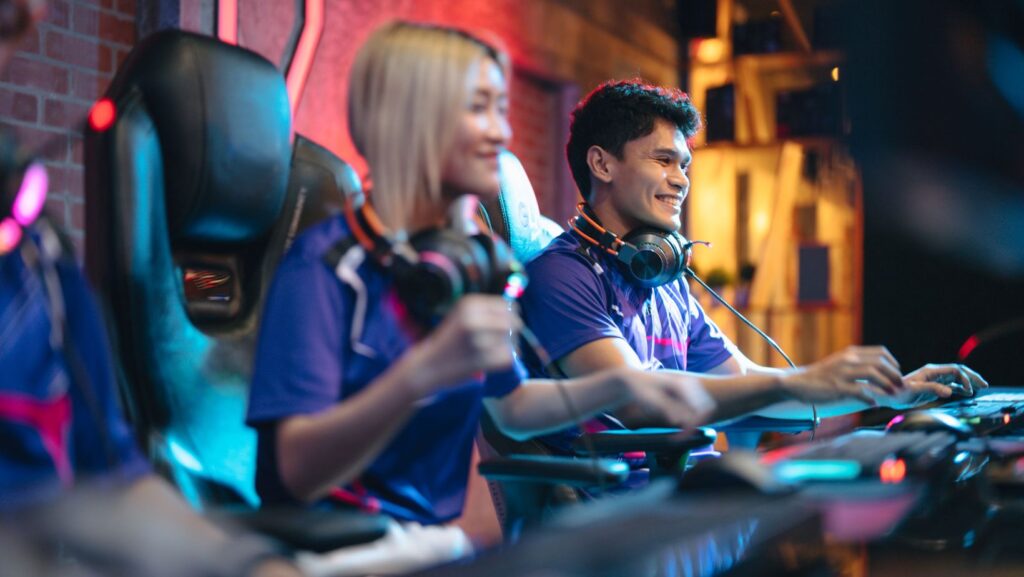As someone deeply immersed in the world of collegiate esports, I’ve witnessed firsthand the remarkable growth and impact of competitive gaming on campuses across the nation. In recent years, esports has evolved from a niche hobby to a mainstream phenomenon, attracting a diverse array of students who are passionate about gaming.
In this article, I’ll delve into the exciting realm of esports in college, exploring how universities are embracing this digital sport as a legitimate form of competition and community building. From varsity esports teams to dedicated gaming arenas, the landscape of collegiate esports is rapidly expanding, offering students unique opportunities to showcase their skills and connect with like-minded individuals.
Join me as I uncover the dynamic intersection of gaming and academia, shedding light on the rise of esports in college and its profound influence on the modern campus experience.
What Is Esports In College
The Rise of Competitive Gaming in Higher Education
 Competitive gaming in higher education, known as esports, refers to organized multiplayer video game competitions among players representing their colleges or universities. It has gained immense popularity in recent years, transforming from a casual pastime to a structured competitive activity on campuses nationwide. Esports programs are formalized with teams, coaches, and competitions, mirroring traditional sports setups.
Competitive gaming in higher education, known as esports, refers to organized multiplayer video game competitions among players representing their colleges or universities. It has gained immense popularity in recent years, transforming from a casual pastime to a structured competitive activity on campuses nationwide. Esports programs are formalized with teams, coaches, and competitions, mirroring traditional sports setups.
Defining Esports in the College Arena
Esports in the college arena combines the competitive spirit of traditional sports with the digital prowess of video gaming. It involves students competing in popular games like League of Legends, Overwatch, and Fortnite, honing their skills, teamwork, and strategic thinking. These competitions often lead to tournaments where colleges face off against each other, fostering a sense of community and school pride among participants.
The Structure of College Esports
Collegiate Esports Organizations and Leagues
 In the realm of college esports, various organizations and leagues play a pivotal role in organizing and regulating competitive gaming activities among students representing their institutions. These entities provide a structured platform for collegiate esports competitions, ensuring fair play, adherence to rules, and overall organization. Examples of prominent collegiate esports organizations include the Collegiate Star League (CSL), Tespa, and the National Association of Collegiate Esports (NACE). These organizations facilitate intercollegiate tournaments, leagues, and events, fostering a vibrant esports community within the college ecosystem.
In the realm of college esports, various organizations and leagues play a pivotal role in organizing and regulating competitive gaming activities among students representing their institutions. These entities provide a structured platform for collegiate esports competitions, ensuring fair play, adherence to rules, and overall organization. Examples of prominent collegiate esports organizations include the Collegiate Star League (CSL), Tespa, and the National Association of Collegiate Esports (NACE). These organizations facilitate intercollegiate tournaments, leagues, and events, fostering a vibrant esports community within the college ecosystem.
The Role of Scholarships and Funding
Scholarships and funding opportunities have become integral components of the college esports landscape, attracting talented gamers and bolstering the growth of esports programs across universities. Many colleges and universities offer scholarships specifically geared towards esports, providing financial support to players based on their skills, achievements, and contributions to the esports community.
The Impact of Esports on College Students
As I delve deeper into the impact of esports on college students, it’s evident that this booming industry presents a plethora of academic opportunities and challenges for those involved.
Academic Opportunities and Challenges
 In the realm of academia, esports offer students unique chances to blend their passion for gaming with their educational pursuits. Programs such as esports management, game design, and sports marketing have emerged, providing avenues for students to channel their love for gaming into viable career paths. Additionally, the strategic and teamwork aspects of esports can enhance students’ critical thinking skills, problem-solving abilities, and leadership qualities, which are highly transferable to various academic disciplines.
In the realm of academia, esports offer students unique chances to blend their passion for gaming with their educational pursuits. Programs such as esports management, game design, and sports marketing have emerged, providing avenues for students to channel their love for gaming into viable career paths. Additionally, the strategic and teamwork aspects of esports can enhance students’ critical thinking skills, problem-solving abilities, and leadership qualities, which are highly transferable to various academic disciplines.
Social and Psychological Implications
Beyond academics, the rise of esports in colleges has significant social and psychological implications for students. Esports provide a platform for students to connect with like-minded individuals, fostering a sense of community and belonging on campus. Team-based games promote collaboration, communication, and conflict resolution skills, strengthening students’ social competencies and interpersonal relationships.
On the flip side, excessive gaming can lead to social isolation, sleep disturbances, and increased levels of stress and anxiety. Colleges need to prioritize mental health resources and support systems to help students navigate the potential psychological challenges associated with esports participation. Encouraging a healthy balance between gaming and other activities can mitigate the negative effects and promote overall well-being among college students involved in esports.

